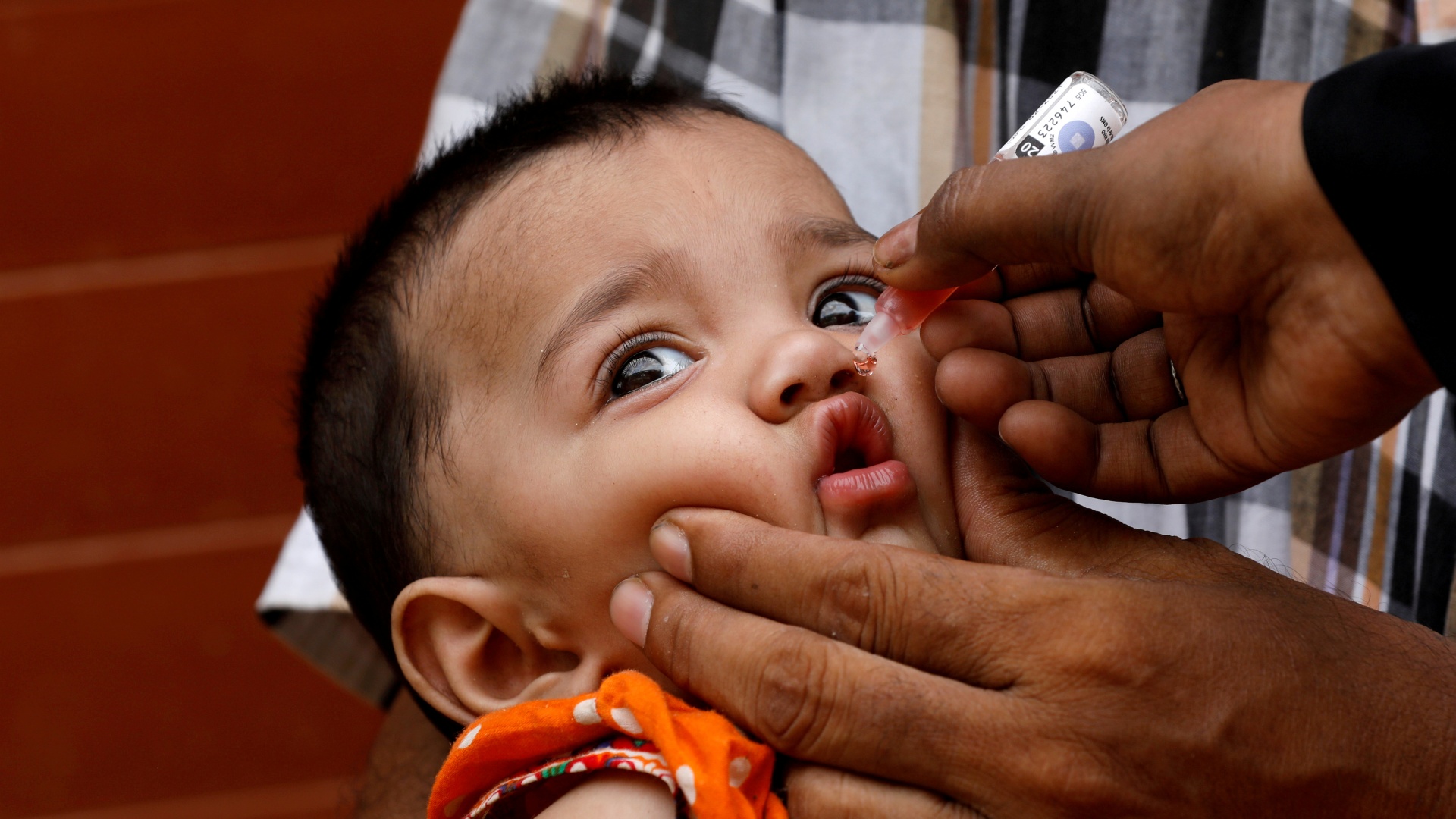Experts believe that awareness, sanitation, nutrition and immunization are the elements that can eradicate this disease.
shahid wafa
It’s September of 2015 and Nigerians are celebrating an epic achievement. They have defeated a crippling enemy that Pakistanis are still struggling with. They have overpowered the polio virus.
World Health Organization declared Nigeria, a polio endemic-free country on 25th of September this year. This announcement was made on the basis that since July 2014, not even a single case of polio had been detected in Nigeria. According to regulations, after three such consecutive years, Nigeria would be declared as a Polio-free country.
Polio is spread by poor sanitation, contaminated water and it affects weak immune system. The virus attacks the nervous system and can cause irreversible paralysis in children.
Nigeria was affected by the polio virus for same causes that are mentioned above and are abundant in Pakistan too. Extremism and militancy also contributed towards the spread of polio virus in Nigeria along with Pakistan.
According to data provided by World development indicators, 36 percent of Pakistan’s total population still does not have access to improved sanitation facilities and more than 30 percent of children under the age of 5 years are malnourished and under weight. These statistics are enough to explain when rest of the world is enjoying a polio free life, why Pakistani children are still threatened by the disease.
Boko Haram, a militant organization, merely on the basis of conspiracy theories, interrupted immunization campaigns in Nigeria. It eventually marred the efforts to curb polio in the country. We have Taliban to do the same job for similar reasons. Attacks on polio vaccinators by Taliban also increased after the alleged use of polio campaign by the American CIA for tracking down Osama Bin Laden in Abbotabad.
Nigeria not only improved sanitation in its cities and villages but also provided security to immunization teams in northern parts of the country from militants of Boko Haram, who believed that polio vaccination would make Muslims sterile. In order to vaccinate children living in Boko Haram-dominated neighborhoods, certain points were set up on major roads to immunize all the children leaving or entering those areas.
A press release issued by WHO says, “As recently as 2012, Nigeria accounted for more than half of all polio cases worldwide. Since then, a concerted effort by all levels of government, civil society, religious leaders and tens of thousands of dedicated health workers have resulted in Nigeria successfully stopping polio. More than 200,000 volunteers across the country repeatedly immunized more than 45 million children under the age of 5 years, to ensure that no child would suffer from this paralyzing disease. Innovative approaches, such as increased community involvement and the establishment of Emergency Operations Centers at the national and state level, have also been pivotal to Nigeria’s success.”
Experts believe that awareness, sanitation, nutrition and immunization are the elements that can eradicate this disease from the whole world. Though the number of polio cases reported so far this year has dropped to 38 from 322 in 2014 in Pakistan, still it is a hard way to go. Nigeria’s victory against polio is a success model under extreme circumstances. Having been faced with almost same problems the Nigerian government was confronted with, Pakistan can replicate the Nigerian model to put a permanent damper on contagious disease of polio.







